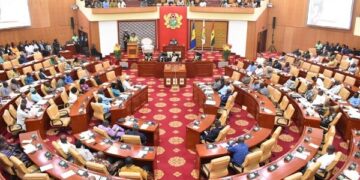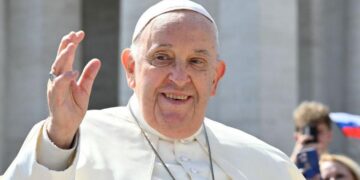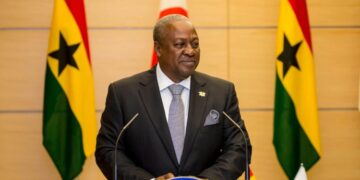The government’s revenue sources such as the Value Added Tax (VAT), are not performing well, According to Minister for InformationKojo Oppong Nkrumah.
The situation, he said, must therefore be confronted in order to rely less on financing and also reduce the debt burden.
Speaking at the 3businesscolloquium organized by Media General on Wednesday, July 6, the Ofoase Ayirebi lawmaker said “A number of our revenue handles in this country are not performing optimally. Take VAT. VAT compliance, the data has gone down. Those who manage fiscal policy will tell you that sometimes, they have to compensate for the nonperformance by hiking up the rate.
“I agree that you have to ensure that the rates are down, like we always say, broaden the base. But we have to come to a certain point where we push more to get those VAT numbers where they ought to be, so that we can get funding for the Ghana we want.
“Take property rates. If you were to send the piece of paper around this auditorium to ask everybody how much property rate did you pay in the year 2020, we may be amazed at the data we are getting.
“These are the realities, in all humility, that we have to confront to move tax to GDP rate from this 12 per cent to about 25 per cent so that you rely less on financing and reduce your debt burden but that will deal with only one side of the challenge.”
For his part, a Senior Fellow at the Africa Centre for Economic Transformation (ACET), Dr John Asafu-Adjaye, indicated that investor confidence in Ghana’s economy dipped due to the downgrade by international credit rating agencies hence, it makes sense to go to the International Monetary Fund (IMF) to rebuild that confidence.
Dr Asafu-Adjaye said the decision by the government to head to the IMF did not come as a surprise to him given the challenges that saddled the economy recently.
“Personally, I wasn’t surprised because given the sovereign rating downgrade, that Ghana suffered, Ghana is not able to to go into the capital market, investors confidence had gone down, capital flight. So I thought that going to the IMF makes sense in terms of restoring investor confidence,” he said during the 3businesscolloquium.
The IMF staff team, led by Carlo Sdralevich, mission chief for Ghana, is in Ghana to begin initial discussions with the Ghanaian authorities about a possible IMF-supported programme.
Mr. Sdralevich in a statement said “On the basis of a request from the Ghanaian authorities, an IMF staff team will in the coming days kick-start discussions on a possible program to support Ghana’s homegrown economic policies. We are at an early stage in the process, given that detailed discussions are yet to take place.”
“The IMF stands ready to assist Ghana to restore macroeconomic stability, safeguard debt sustainability, and promote inclusive and sustainable growth, and address the impact of the war in Ukraine and the lingering pandemic.”
“We are looking forward to our engagement with the authorities in Accra,” the Fund said.
The Government of Ghana on Friday, July 1 announced that it was seeking support from the IMF.
This followed a telephone conversation between the President and the IMF Managing Director, Miss Kristalina Georgieva, conveying Ghana’s decision to engage with the Fund, a statement by the Ministry of Information said.



















































































